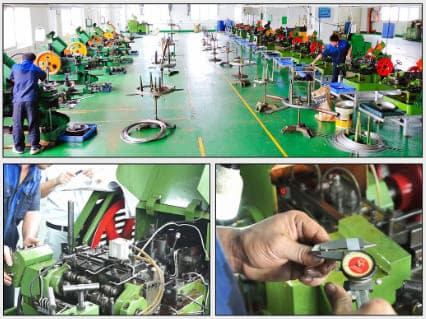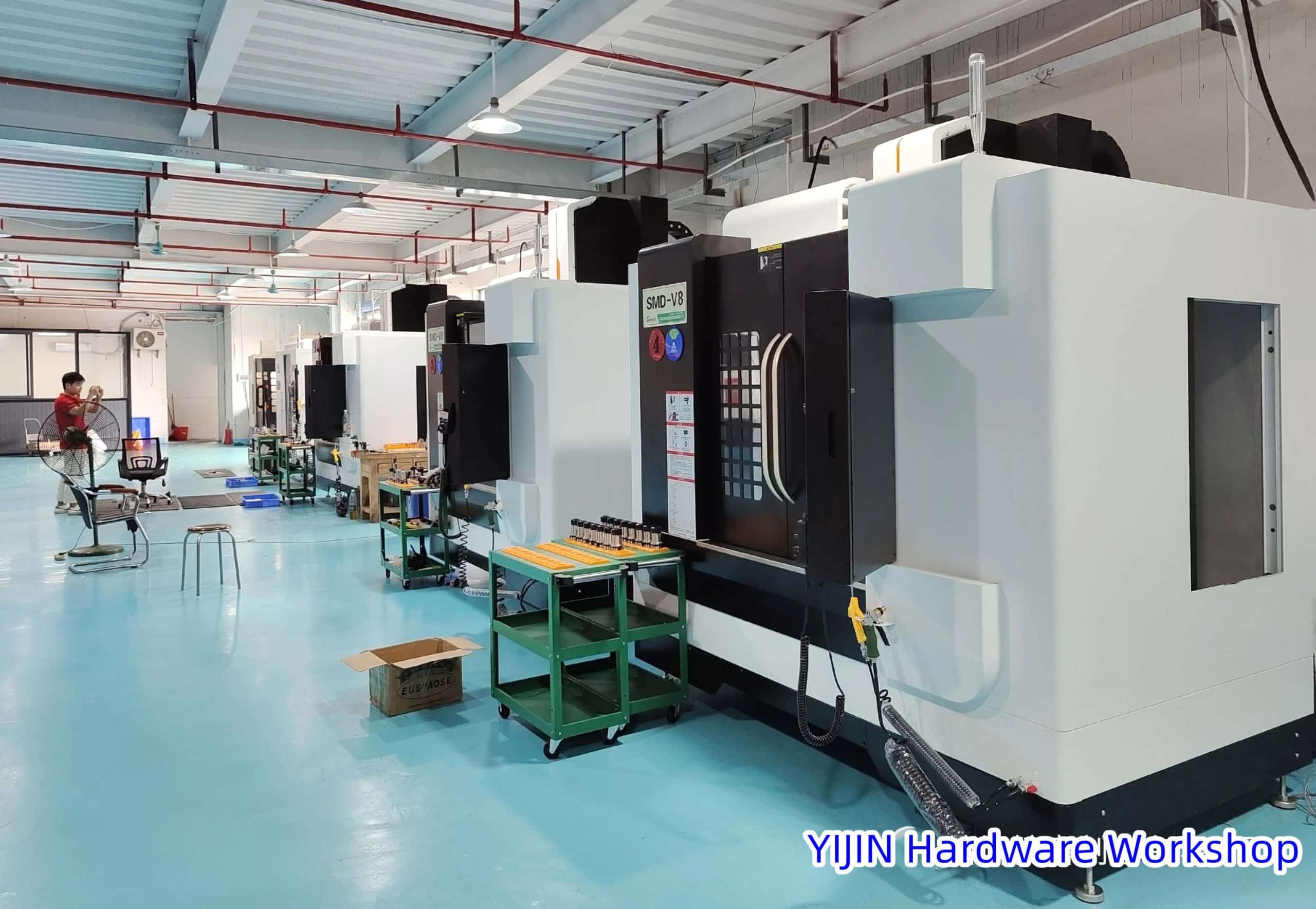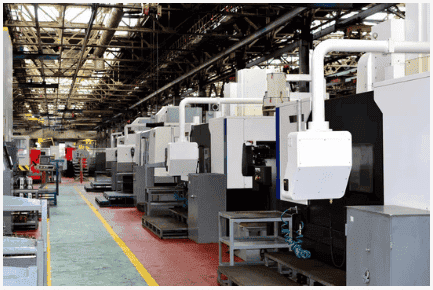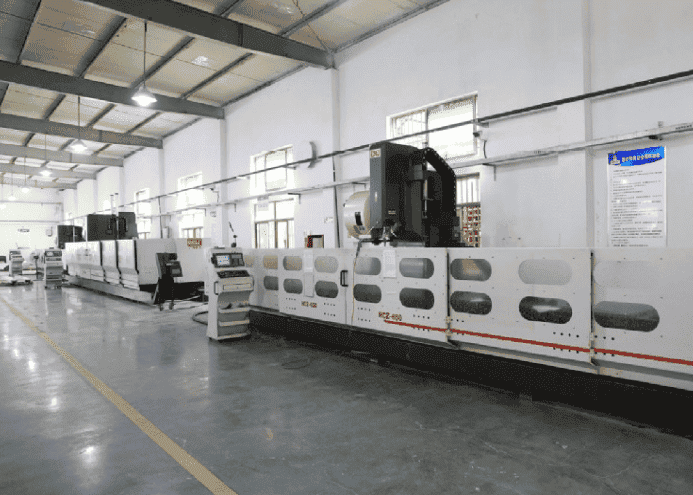Choosing the right bolts and nuts manufacturer is crucial for businesses and individuals seeking high-quality fasteners.
Regarding finding reliable and reputable manufacturers, China has emerged as a prominent player in the global market.
With huge infrastructure, advanced machinery, and competitive pricing. China has become one of the best hubs to source bolts and nuts.
The decision requires careful consideration of various factors to ensure that the chosen fastener manufacturers can meet your specific requirements in terms of quality, reliability, and cost-effectiveness.
In this article, we will get an idea of what key factors need to be considered when choosing bolts and nuts manufacturers in China.
By understanding these factors and making informed decisions, you can establish long-term partnerships with reliable manufacturers and streamline your supply chain for optimal results.
Below are some factors that need to be considered when choosing Bolts and Nuts Manufacturers in China:

I. Choosing Right Manufacturers: Key for Product Quality, Success
Selecting the right manufacturer is one of the tough decisions that can impact the quality of your products.
Manufacturers play a vital role in ensuring that your designs and specifications are translated into tangible, high-quality products that meet your customers’ expectations.
By choosing the right manufacturer, you can enhance the quality of your products, streamline your production processes, and achieve greater success in your projects.
Importance of Selecting the Right Manufacturer:
Selecting the right manufacturer is a critical decision that holds immense importance for businesses across various industries.
The manufacturer’s choice can significantly impact a company’s success, profitability, and reputation.
From ensuring product quality and reliability to optimizing production processes and streamlining the supply chain, the right manufacturer plays a pivotal role in the overall success of a business.
1. Product Quality:
The quality of your products is directly linked to the capabilities and expertise of your manufacturer.
A reputable manufacturer with a strong commitment to quality control processes can deliver products that meet or exceed industry standards.
By selecting a manufacturer known for their attention to detail and adherence to quality assurance protocols, you can ensure that your products are reliable, durable, and perform as intended.
It, in turn, helps build customer trust, fosters brand loyalty, and leads to long-term business success.

2. Project Success:
Choosing the right manufacturer is crucial for the overall success of your projects.
Manufacturers with extensive experience and knowledge in your industry can provide valuable insights and suggestions to optimize your designs, streamline production processes, and improve efficiency.
They can collaborate with you at every stage, from prototyping to production, ensuring that your project milestones are met within the desired timeframes.
A reliable manufacturer becomes a strategic partner, working alongside you to achieve your project goals and objectives.
II. Manufacturer’s Reputation
A manufacturer’s reputation is an essential factor when selecting a supplier. It provides insights into the company’s history, stability, and overall performance.
Below are the 3 factors that determine manufacturer reputation.
1. Company History and Stability:
A manufacturer’s history and stability indicate their experience, expertise, and longevity in the industry.
First, we will look for manufacturers with a solid track record and a history of successful completion of projects.
Apart from this, we will look for certifications such as ISO Certificates, Quality Control Certificates, and all.
Consider factors such as their establishment date, growth trajectory, and any significant milestones achieved over the years.
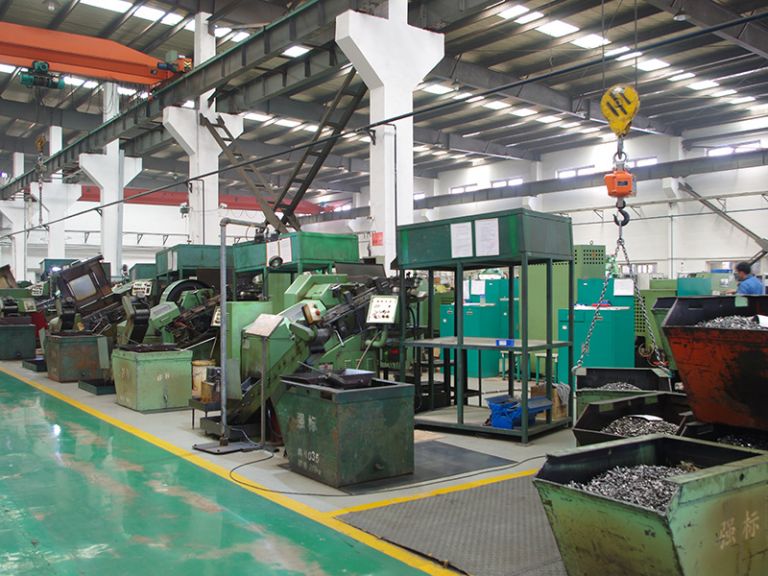
2. Customer Reviews and Testimonials:
Customer reviews and testimonials provide valuable feedback on a manufacturer’s performance and customer satisfaction.
Look for reviews from multiple sources, such as online platforms, industry forums, or direct references from the manufacturer.
Positive reviews and testimonials indicate that the manufacturer has a history of delivering quality products, providing excellent customer service, and meeting customer expectations.
Conversely, negative reviews may highlight potential issues to be aware of before making a decision.
3. Professional Certifications and Industry Memberships:
Professional certifications and industry memberships demonstrate a manufacturer’s commitment to quality, compliance, and continuous improvement.
Look for certifications such as ISO 9001 (quality management), ISO 14001 (environmental management), or ISO 45001 (occupational health and safety).
Additionally, membership in reputable industry associations or trade organizations can be a positive indicator of the manufacturer’s commitment to best practices and ethical conduct.
III. Quality of Products
The quality of products is of utmost importance when selecting a manufacturer. Here are three key aspects to consider when assessing the quality of products:
1. Materials Used in Production:
The choice of materials significantly impacts the quality and performance of products. A reputable manufacturer should use high-quality materials suitable for the intended application.
The material used for bolt and nut is stainless steel, alloy, and cast iron. The manufacturer should have strict material sourcing procedures to ensure the materials meet industry standards and specifications.
2. Manufacturing Processes and Techniques:
The manufacturing processes and techniques a manufacturer employs greatly influence the quality of the end products.
A reliable manufacturer should have well-established production processes and use modern manufacturing techniques.
They should have a skilled workforce with expertise in the specific types of bolts and nuts being produced.
Advanced machinery, precision tools, and automation can contribute to consistent product quality.
Understanding the manufacturer’s approach to manufacturing and their commitment to process improvement is crucial in ensuring high-quality products.
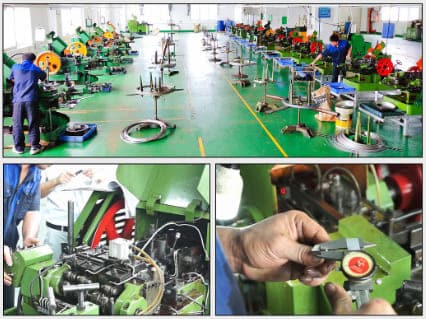
3. Quality Control Measures and Certifications:
A reputable manufacturer should have robust quality control procedures in place at various stages of production.
Look for manufacturers who have implemented quality management systems and obtained certifications such as ISO 9001.
Additionally, they should have inspection equipment and facilities to conduct tests for dimensional accuracy, strength, hardness, and other relevant parameters.
By considering the materials used, manufacturing processes, and quality control measures, you can assess the manufacturer’s commitment to producing high-quality products.
It is requesting product samples or visiting the manufacturer’s facility to evaluate the product quality firsthand.
Addit is recommended orally; gathering feedback from existing customers or checking for product certifications or awards can provide further insights into the manufacturer’s product quality.
Choosing a manufacturer prioritizing quality can result in better overall outcomes for your business.
IV. Production Capacity
When selecting a manufacturer, it is important to consider their production capacity to ensure they can meet your requirements. Here are two key aspects of assessing production capacity:
1. Manufacturing Facilities and Location:
Examine the manufacturer’s manufacturing facilities and their location. The facilities’ size and location give an idea of how big the production capacity is.
Well-maintained and modern facilities are more likely to have efficient production processes and equipment. Additionally, consider the location of the facilities for your business.
2. Scalability and Flexibility in Production Volumes:
Assess the manufacturer’s ability to scale production volumes based on your needs. Consider their current production capacity and whether it aligns with your requirements.
A manufacturer with scalable operations can handle increased production volumes as your business grows or when there are fluctuations in demand.
Furthermore, evaluate their flexibility in accommodating changes to order sizes or specifications.
A manufacturer that can quickly adapt to your changing needs can provide a more reliable and responsive partnership.
Additionally, inquire about the manufacturer’s lead times for production. Understanding their typical turnaround times is crucial in planning your operations and managing customer expectations.
It is also important to consider the manufacturer’s ability to handle urgent or time-sensitive orders, as this may be a critical factor in certain industries or situations.
By considering the manufacturing facilities, location, scalability, and flexibility in production volumes, you can assess the manufacturer’s production capacity and determine if they can meet your current and future requirements.
Open communication with the manufacturer regarding your specific needs and expectations is crucial to ensure a successful partnership.
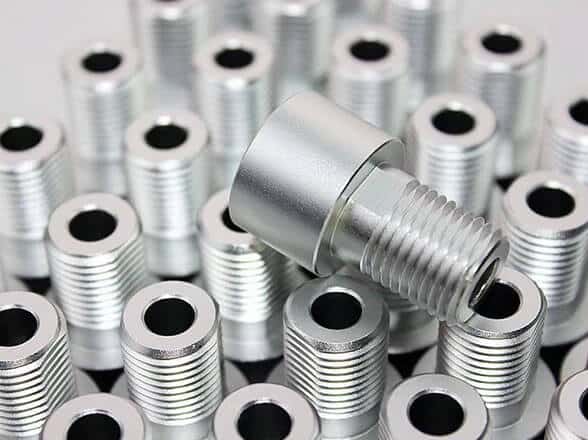
V. Product Range
When choosing a manufacturer, it is important to consider their product range to ensure they meet your specific requirements.
Here are two key aspects to evaluate regarding the product range:
1. Availability of Diverse Bolt and Nut Types and Sizes:
Assess the manufacturer’s ability to provide a wide range of bolt and nut types and sizes.
Different applications require specific types and sizes of bolts and nuts, such as hex bolts, carriage bolts, flange nuts, or lock nuts.
A wide range of products shows the ability and expertise of manufacturers in that field.
Additionally, consider the availability of standard as well as metric sizes. Depending on your requirements and location, you may need bolts and nuts in metric or imperial measurements.
A manufacturer that offers both options can provide greater flexibility to meet your specific needs.
2. Customization Capabilities:
Evaluate the manufacturer’s ability to provide customized bolt and nut solutions. While standard products may meet most requirements, certain applications may call for specialized or unique specifications.
A manufacturer that can accommodate customization allows you to obtain products tailored to your needs.
It may include customization in terms of dimensions, materials, coatings, or even design modifications.
Please discuss with the manufacturer their customization capabilities and experience in handling custom projects.
Inquire about their engineering and design support and any additional costs or lead times associated with customization.
A manufacturer that can work closely with you to develop custom solutions demonstrates their commitment to meeting your unique requirements.
By considering the availability of diverse bolt and nut types and sizes and the manufacturer’s customization capabilities, you can ensure that they can provide the right products for your specific needs.
It is important to communicate your requirements and expectations to the manufacturer to ensure they can deliver the desired results.
VI. Pricing and Payment Terms
When selecting a manufacturer, pricing, and payment terms play a significant role in the decision-making process.
Here are three key aspects to consider when evaluating pricing and payment terms:
1. Assessing Price Competitiveness:
It is essential to assess the price competitiveness of the manufacturer’s products. Obtain quotes from multiple manufacturers to compare prices.
However, pricing should not be the sole determining factor. Ensure you compare similar products in quality, materials, specifications, and any additional services offered.
Choosing the lowest-priced option without considering other factors may compromise product quality or service.
2. Payment Methods and Terms Available:
Evaluate the payment methods and terms offered by the manufacturer. Common payment methods include wire transfers, letters of credit, or online payment platforms.
Determine whether the manufacturer accepts the payment method that suits your business’s preferences and capabilities.
Additionally, consider the payment terms, such as upfront deposits, progress payments, or payment upon delivery.
Choose a payment arrangement that aligns with your cash flow and risk tolerance.
3. Understanding Hidden Costs and Extras:
When evaluating pricing, it is crucial to understand any hidden costs or extras that may impact the total cost of the products.
Inquire about additional charges, such as tooling costs, packaging fees, shipping expenses, or taxes.
These costs can significantly affect the overall price and should be considered when comparing quotes from different manufacturers.
Request a detailed breakdown of the pricing structure to ensure transparency and avoid unexpected expenses.
It is also important to consider the value for money rather than solely focusing on the lowest price.
A manufacturer that offers competitive pricing while maintaining high-quality products, reliable customer service, and timely deliveries can provide better long-term value for your business.
Communicate openly with the manufacturer regarding pricing and payment terms.
Clarify any uncertainties, negotiate where possible, and ensure that the agreed-upon terms are documented in a written contract or agreement to avoid any misunderstandings in the future.
By assessing price competitiveness, evaluating payment methods and terms, and understanding hidden costs and extras, you can make an informed decision that balances affordability with the desired quality and service level from the manufacturer.
VII. Customer Support and Communication
Customer support and effective communication are vital factors when choosing a manufacturer.
Here are two key aspects to evaluate in terms of customer support and communication:
1. Communication and Language Proficiency:
Efficient communication is essential for a successful partnership with a manufacturer.
Evaluate the manufacturer’s communication channels and their language proficiency. Determine if they have fluent English speakers or provide translation services if necessary.
Clear communication and local language have more impact on understanding the specific requirements, and specs of the product.
It also facilitates smooth collaboration throughout the manufacturing process.
Additionally, consider the manufacturer’s accessibility and responsiveness. Evaluate their availability during your business hours and their willingness to communicate regularly through email, phone calls, or video conferences.
Open and transparent communication fosters a stronger working relationship and enables effective problem-solving.
2. Response Time and Issue Resolution:
Assess the manufacturer’s response time and ability to resolve issues efficiently.
Timely responses to inquiries, quote requests, or technical questions indicate their commitment to customer support.
Quick turnaround times demonstrate their attentiveness and professionalism.
Furthermore, inquire about their approach to issue resolution. How do they handle quality concerns, order changes, or other problems that may arise during manufacturing?
A manufacturer with a proactive and solution-oriented mindset is more likely to address issues promptly and work towards satisfactory resolutions.
Request information on their customer support processes, escalation procedures, and any warranties or guarantees they offer.
Consider reaching out to references or existing customers to gather feedback on the manufacturer’s customer support and problem-solving abilities.
By evaluating the manufacturer’s communication proficiency, response time, and issue resolution capabilities, you can ensure effective communication channels and timely support throughout your partnership.
Clear and efficient communication improves the relationship and enhances the overall manufacturing experience.
VIII. Logistics and Shipping
Logistics and shipping are critical considerations when selecting a manufacturer. Here are two key aspects to evaluate regarding logistics and shipping:
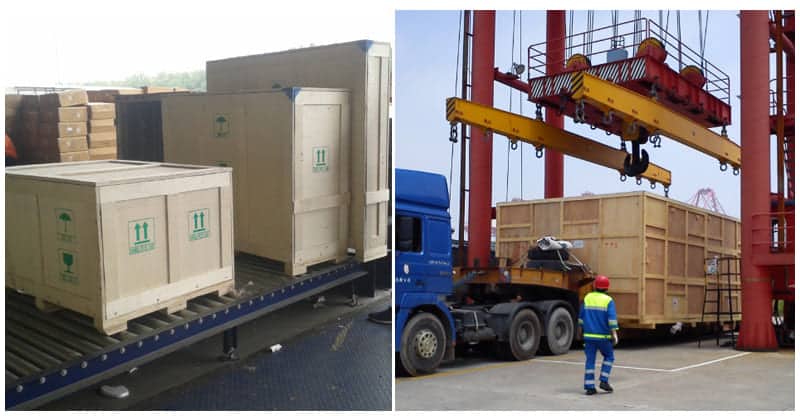
1. Lead Times and Prompt Delivery:
Assess the manufacturer’s lead times and ability to deliver products within your required timeframe.
A manufacturer with shorter lead times can help you maintain a more efficient supply chain and meet customer demands on time.
Additionally, inquire about their shipping capabilities and the transit times to your desired destination.
If you have specific deadlines or urgent orders, ensure the manufacturer can accommodate expedited shipping options.
Prompt delivery is crucial to prevent production delays and keep your operations running smoothly.
2. Packaging and Shipping Methods:
Evaluate the manufacturer’s packaging and shipping methods to ensure safe and secure transportation for your products.
Inquire about the packaging materials used to protect the bolts and nuts during transit.
Adequate packaging, using appropriate cushioning materials and sturdy boxes, helps prevent damage and ensures that the products reach you in optimal condition.
If you have specific shipping preferences or arrangements, communicate them clearly with the manufacturer to ensure they can accommodate your needs.
It is also crucial to understand any additional costs associated with shipping, such as customs duties, taxes, or handling fees.
When evaluating logistics and shipping, gathering feedback from other customers or references regarding the manufacturer’s reliability in meeting delivery deadlines and the condition of the received products is beneficial.
This feedback can provide insights into the manufacturer’s performance in this area.
You can ensure a smooth and efficient logistics process by considering lead times, prompt delivery, packaging methods, and shipping options.
Effective logistics and shipping practices contribute to timely deliveries, minimized product damage, and overall customer satisfaction.
IX. After-sales Support
After-sales support is a crucial aspect to consider when choosing a manufacturer. Here are two key factors to evaluate regarding after-sales support:
1. Warranty and Return Policy:
Please inquire about the manufacturer’s warranty and return policy for their products. A trustworthy manufacturer should offer a warranty period that ensures the quality and performance of their bolts and nuts. It includes the coverage of defects, repairs, or replacements.
A manufacturer with a clear and customer-friendly return policy can provide reassurance and support in resolving any concerns.
2. Technical Support and Assistance:
Assess the manufacturer’s technical support capabilities. Technical assistance can be valuable when you require guidance or troubleshooting during the implementation or use of their products.
Determine if the manufacturer has a dedicated technical support team or engineers who can provide expertise and solutions to any technical queries or challenges you may encounter.
Inquire about the availability of technical documentation, such as product manuals, specifications, or installation guidelines.
Clear and comprehensive documentation can assist you in correctly using and maintaining the bolts and nuts.
Moreover, consider if the manufacturer offers training programs or workshops to enhance your understanding of their products or to address any specific technical requirements.
Their willingness to provide support and assistance showcases their commitment to customer satisfaction beyond the initial sale.
To evaluate the quality of after-sales support, reaching out to references or existing customers can be helpful.
Their experiences can provide insights into the manufacturer’s responsiveness, effectiveness, and willingness to resolve post-sales issues.
By assessing the warranty and return policy, as well as the technical support and assistance provided by the manufacturer, you can ensure a reliable partner that stands behind their products and offers the necessary support to address any concerns that may arise.
X. Essential for Balancing Factors and Crafting Successful Partnerships
Balancing factors and conducting thorough research are essential steps in crafting successful partnerships with manufacturers.
Here are two key aspects to consider when aiming for a successful partnership:
1. Importance of Thorough Research and Due Diligence:
Thorough research and due diligence are crucial when evaluating potential manufacturers.
Take the time to thoroughly research the reputation, history, qualifications, and customer feedback of the manufacturer.
Insights on their dependability and performance can be found by looking at their background, certifications, and presence in the sector.
Visiting the manufacturer’s facility is an option in addition to internet research. You can evaluate their quality assurance procedures, overall work atmosphere, and production capability.
Engaging in direct communication with the manufacturer’s representatives, asking relevant questions, and seeking references or testimonials can further enhance your understanding of their capabilities and suitability for your needs.
2. Balancing Factors to Ensure a Successful Partnership:
Crafting a successful partnership requires balancing multiple factors to meet your specific requirements.
Think about elements like product quality, adaptability for customization, manufacturing capacity, customer service, and logistics.
Make sure the supplier can regularly produce products of the highest caliber that satisfy your requirements and do so at a price that is reasonable.
Look for a manufacturer that aligns with your values and understands your specific needs, offering flexibility, customization options, and responsive customer support.
 Call Us Today! (+86) 188-2253-7569
Call Us Today! (+86) 188-2253-7569